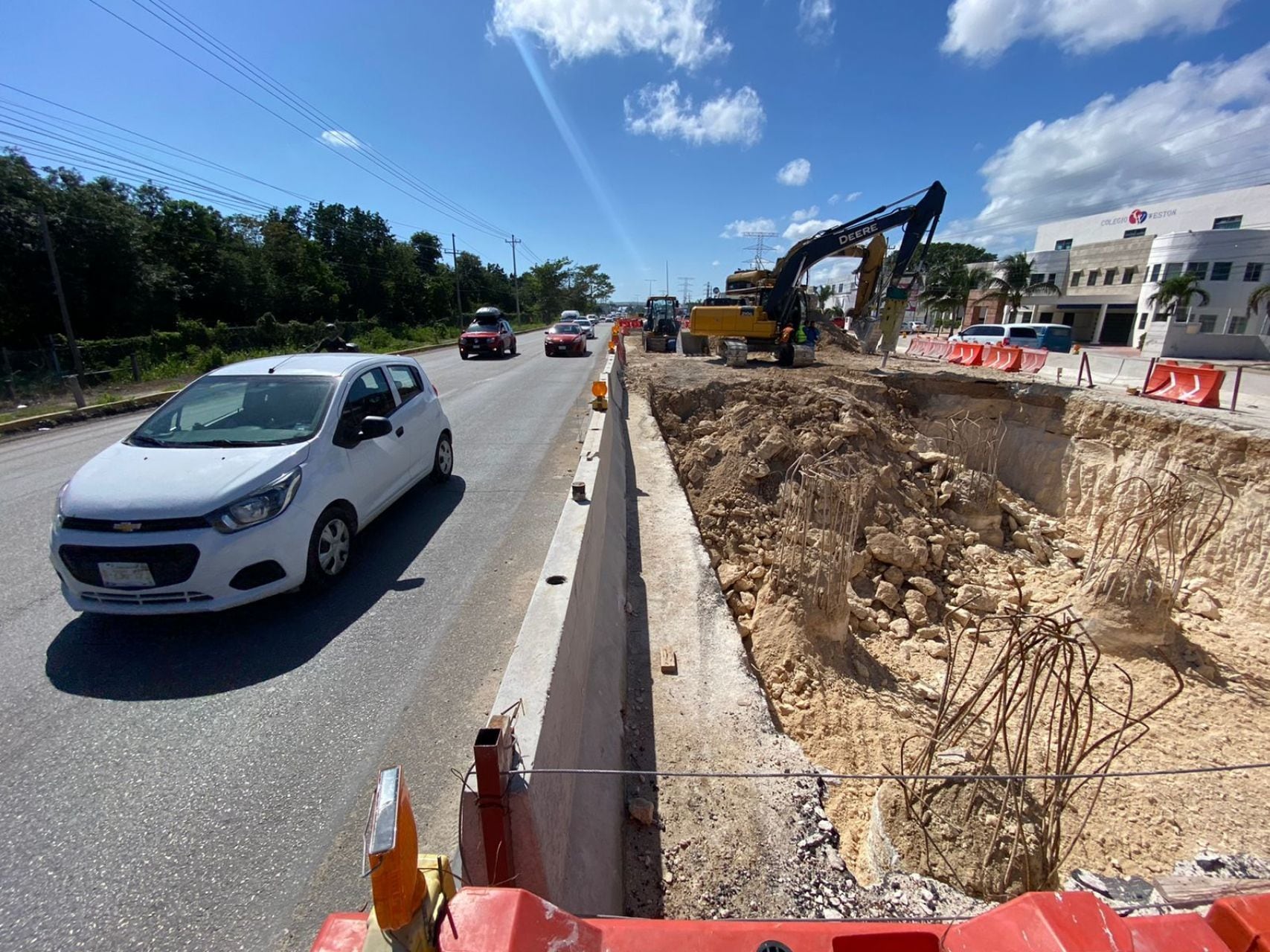
The denunciations and warnings against the construction of the Maya Train, the flagship work of Mexican President Andrés Manuel López Obrador (AMLO), continue. In addition to the recent campaign starring people from the entertainment industry, one of the denunciations that has been most emphasized is how this means of transport will affect the underground cave and river systems found in that area.
For example, in a video posted on social networks, it is shown how, to make the work possible, the entrance to the caves or xenotes that abound in the area is practically crushed. The narrator lists the rationale behind these natural areas; from spaces for the flow of water, to sacred places for Mayan ancestors. “The worst thing I have seen from this devastation,” he expresses with concern.
Meanwhile, the construction of the Maya Train is progressing against the clock in order to be able to comply in a timely manner with the delivery scheduled for the end of 2023, as promised by the federal president.

And to achieve this, a new line has been made that not only affects the jungle - where thousands of trees have been cut down - but also underground rivers, caves and cenotes, this has been denounced by several Organizations No. Government (NGOs), which have shown some images of the destruction of the environment of Quintana Roo, a place known not only for its beautiful beaches nestled in the Mexican Caribbean, but also for its immense natural and cultural wealth.
Due to delays in the construction of several sections of the Maya Train, last January the head of the National Fund for the Promotion of Tourism (Fonatur) was relieved. Rogelio Jiménez Pons stopped leading the Maya Train Project and the direction of Fonatur to be replaced by Javier May, who until then served as head of the Welfare Secretariat.
With the arrival of May, construction work has accelerated the pace to complete the work in a timely manner, and although many communities of Mayan indigenous peoples have opposed the Train and have even obtained shelters, the train will pass under any circumstances.

Several organizations such as UNE Mexico have denounced the destruction of the ecosystem in the area of Playa del Carmen where thousands of forest trees have been documented as a result of the new line of the Maya Train.
Section 5 South, which covers Playa del Carmen and Tulum, is 60.3 kilometers long and was planned to be by an overpass which was being built on federal highway 307 Playa del Carmen-Tulum. But in the hurry to finish the works by the end of 2023, it will now pass at ground level through the jungle area that runs parallel to that federal road.
Although May's argument is that the modification of the route “is the best decision” since it will not affect economic activity in the region and the date set by the president will be met, the truth is that there are numerous environmental impacts.
On February 18, the Ministry of Agrarian, Territorial and Urban Development (Sedatu) reported the expropriation of 231 land located on an area of 535 hectares in the municipalities of Benito Juárez, Solidaridad, Puerto Morelos and Tulum, in Quintana Roo, as being considered of public utility for the Mayan Train.
“The buildings referred to in previous paragraphs are appropriate and suitable for the construction and integral operation of the Mayan Train Project, and it is therefore necessary to expropriate privately owned properties located on the surface of Section 5 North and Section 5 South indicated in advance”, indicated the expropriation text.
According to Sedatu, the section will bring benefits to those who live and work in the municipalities, since there will be greater access to health, education and sports services; but according to specialists such as Rodrigo Medellín, from the Institute of Ecology of the National Autonomous University of Mexico (UNAM), the government “is giving them trinkets in exchange for gold”, since he argues that the damage to communities will be disastrous.
KEEP READING:
Últimas Noticias
Debanhi Escobar: they secured the motel where she was found lifeless in a cistern
Members of the Specialized Prosecutor's Office in Nuevo León secured the Nueva Castilla Motel as part of the investigations into the case

The oldest person in the world died at the age of 119
Kane Tanaka lived in Japan. She was born six months earlier than George Orwell, the same year that the Wright brothers first flew, and Marie Curie became the first woman to win a Nobel Prize

Macabre find in CDMX: they left a body bagged and tied in a taxi
The body was left in the back seats of the car. It was covered with black bags and tied with industrial tape
The eagles of America will face Manchester City in a duel of legends. Here are the details
The top Mexican football champion will play a match with Pep Guardiola's squad in the Lone Star Cup

Why is it good to bring dogs out to know the world when they are puppies
A so-called protection against the spread of diseases threatens the integral development of dogs




